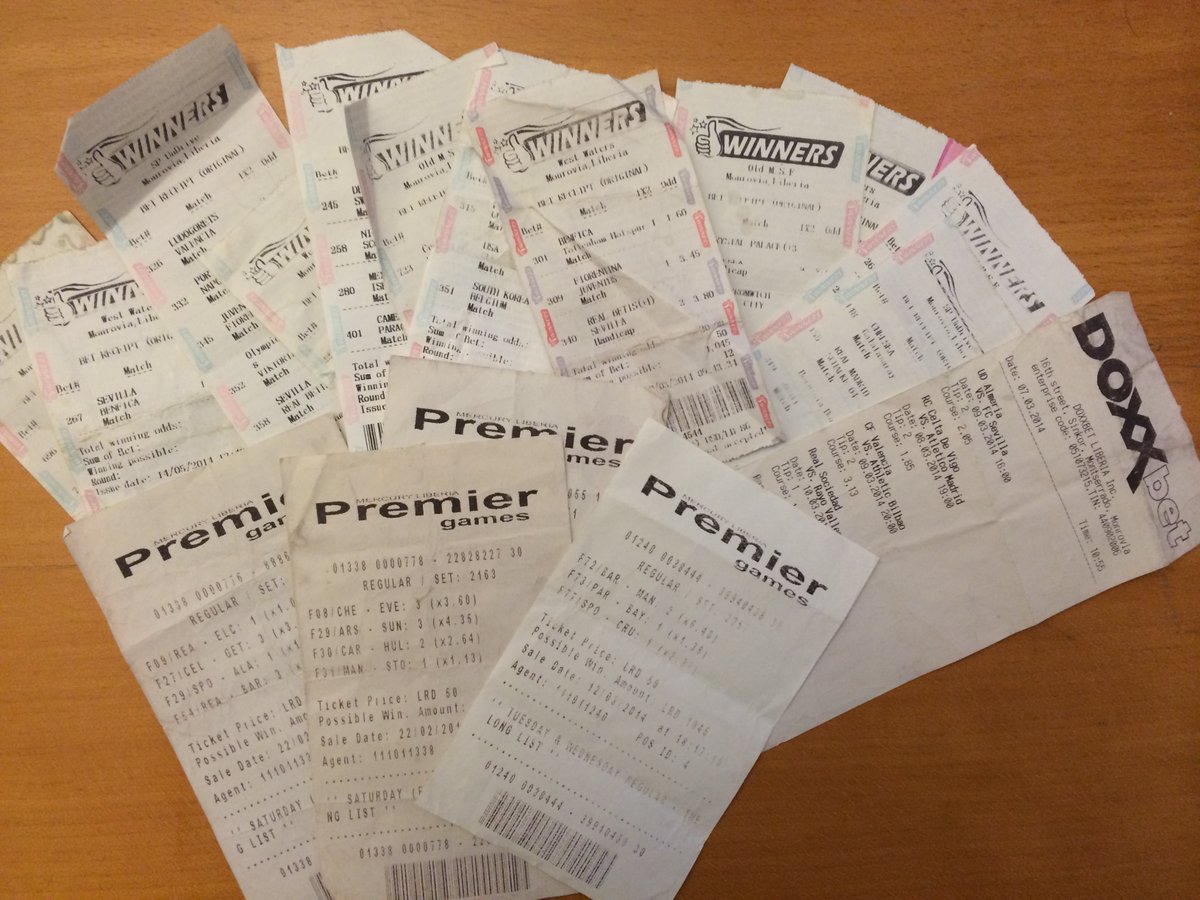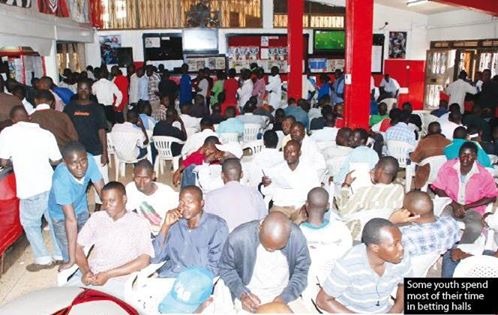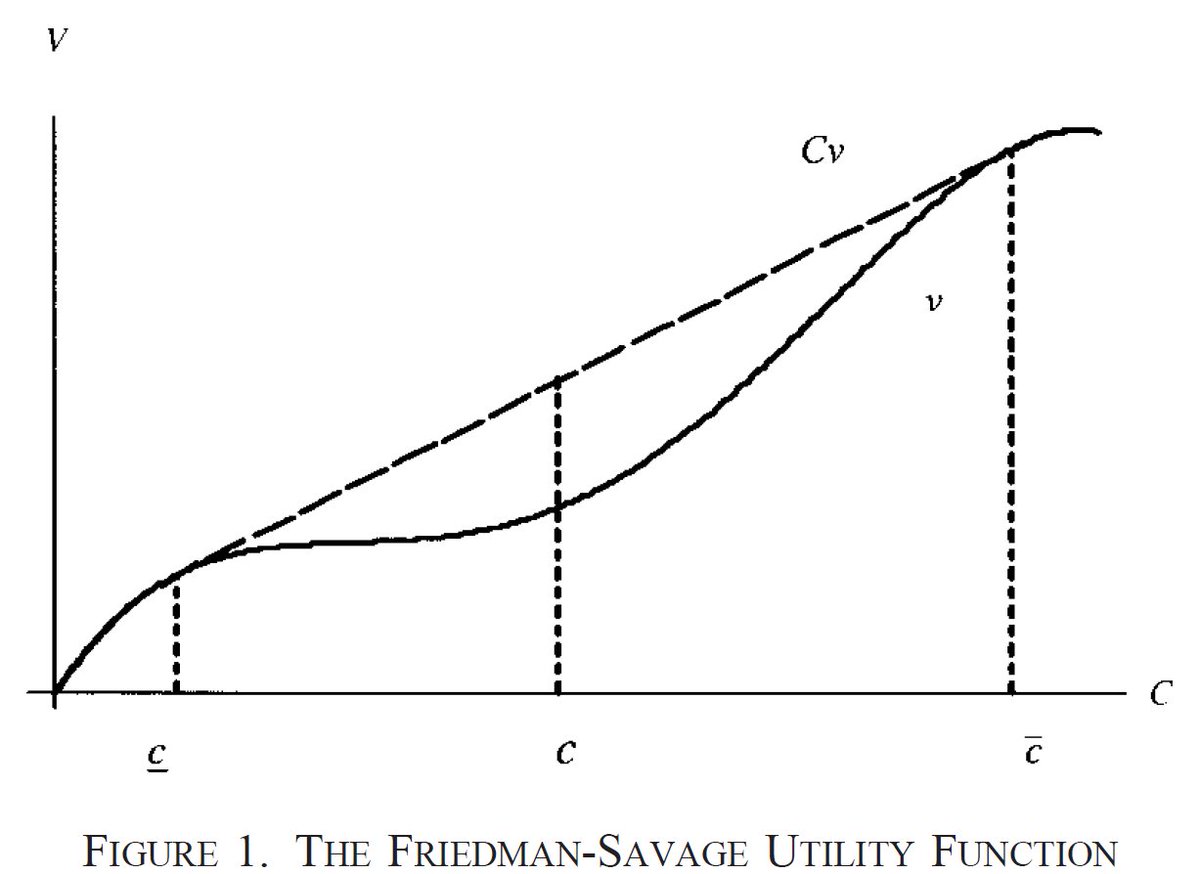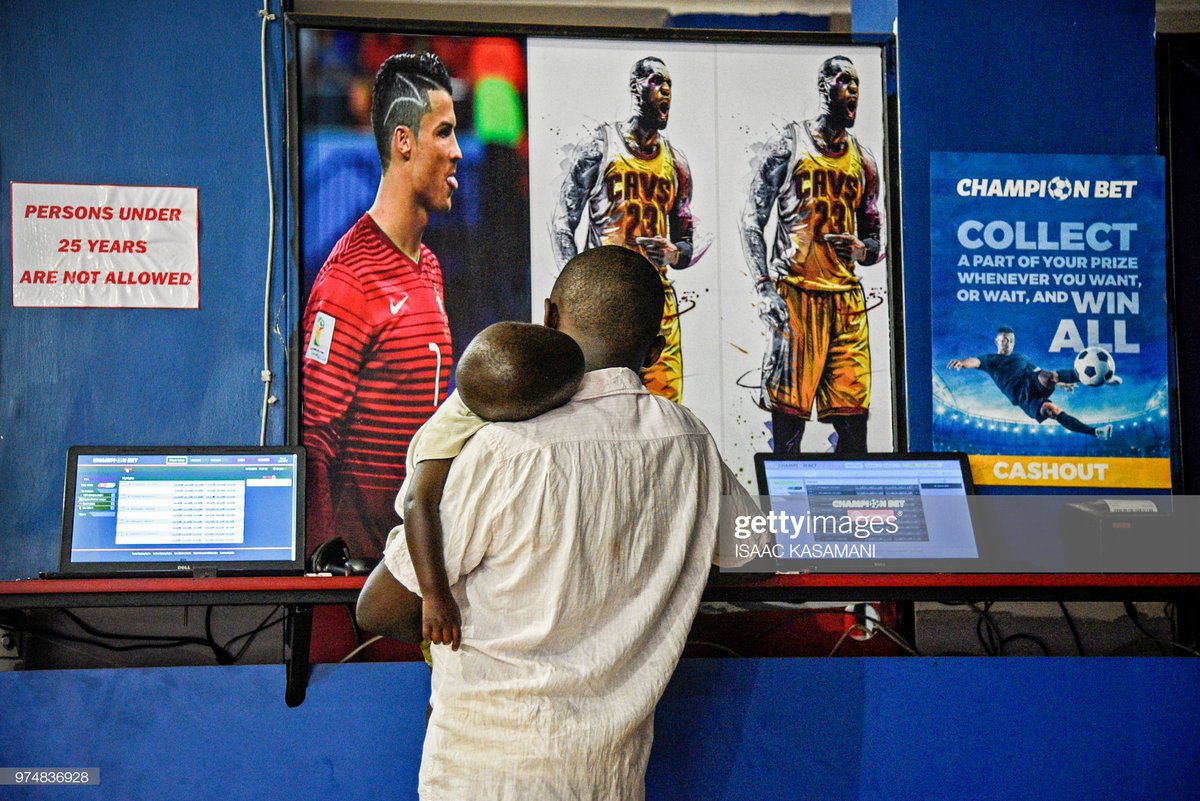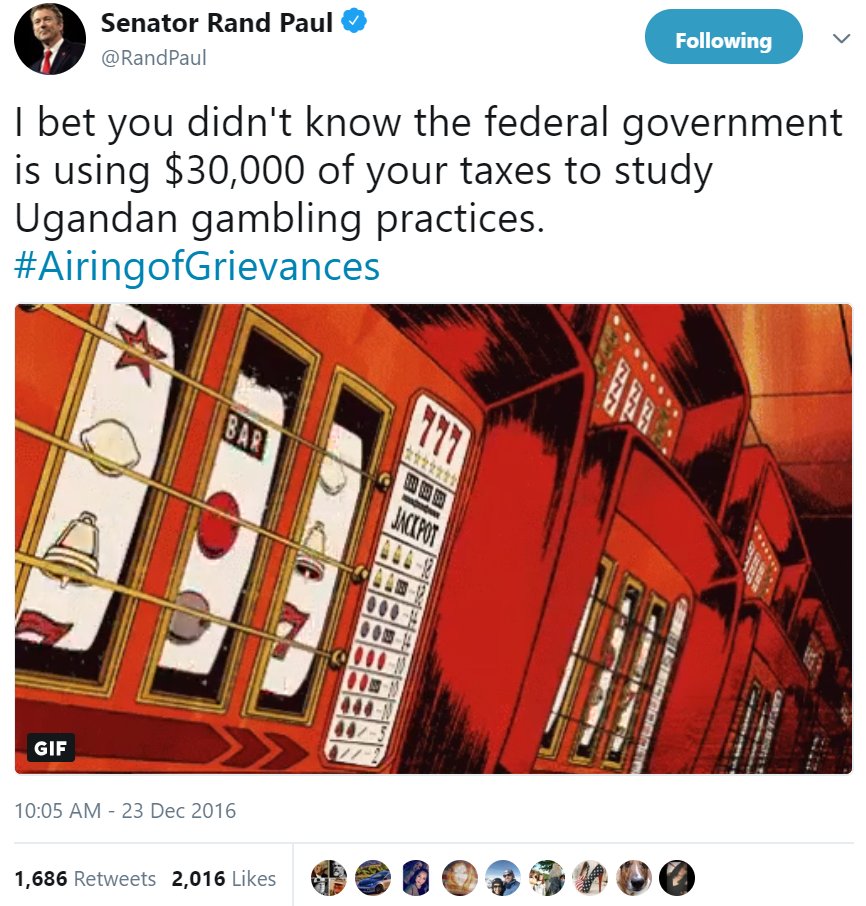Amid the chaos of the last few weeks, my paper on sports betting in Uganda came out.
A thread for those who’d like to know more, but don't want to download the pdf/skim the intro. 1/17 https://www.aeaweb.org/articles?id=10.1257/app.20180177
A thread for those who’d like to know more, but don't want to download the pdf/skim the intro. 1/17 https://www.aeaweb.org/articles?id=10.1257/app.20180177
Sports betting is ENORMOUS globally. Annual value is ~200B USD with >100s M participants
Its growing esp rapidly in developing countries, enabled by new techs enabling low-risk entry in these emerging markets.
(Tix are bets I made and lost while “learning” abt betting.) 2/17
Its growing esp rapidly in developing countries, enabled by new techs enabling low-risk entry in these emerging markets.
(Tix are bets I made and lost while “learning” abt betting.) 2/17
In Uganda, a recent policy report by @EPRC_official suggested that 36% of men had participated in the last year and spent 12% of their income on it. Primary stated motivation (80%) is “to get money” (not “fun”). 3/17 https://ideas.repec.org/p/ags/eprcrs/234554.html
Standard product in Uganda (as elsewhere) is to bet on intl football. Predicting more outcomes → ↑ payouts but ↓ likelihood of winning. Can win up to 2K USD but most bettors target amounts that are low multiples of their weekly earnings. Amounts that could (?) be savable. 4/17
Sidebar: For more background, this was an excellent documentary from the @BBCAfrica by @Zoe_Flood on betting in Uganda that came out just a few months ago. 5/17
https://twitter.com/Zoe_Flood/status/1176487843490926597?s=20
https://twitter.com/Zoe_Flood/status/1176487843490926597?s=20
Participants only win back ~60 cents per $ spent (doc suggests less). Why then is participation so high? Esp among marginalized pops both in Uganda and globally?
My paper presents evidence that financial (savings) constraints contribute to high demand for sports betting. 6/17
My paper presents evidence that financial (savings) constraints contribute to high demand for sports betting. 6/17
Most explanations for gambling focus on vice, cognitive error, or fun. All may be important.
But theory back to Friedman+Savage suggests that non-concave utility can lead to gambling and this can result from demand for lumpy exps in the presence of financial constraints. 7/17
But theory back to Friedman+Savage suggests that non-concave utility can lead to gambling and this can result from demand for lumpy exps in the presence of financial constraints. 7/17
Presented with liquidity needs, ppl have to choose from different liq generation strategies. Economists spend a lot of time thinking abt credit and saving, but betting could also serve this role. Where these other strategies are impeded, betting may be especially appealing. 8/17
Empirical work testing this link is limited. I show 4(ish) pieces of evidence to support this claim from an experiment I conducted in Kampala with ~2,000 young male bettors.
Sampling was done to identify “normal” bettors. We avoided cherry-picking extreme participants. 9/17
Sampling was done to identify “normal” bettors. We avoided cherry-picking extreme participants. 9/17
Result 1: Winning usage.
Winnings are disproportionately spent on large, lumpy expenditures (relative to normal/divisible exps) and this effect is driven by people with low saving ability.
Ex-post behavior ≠ ex-ante motive, but IS consistent with stated reasons. 10/17
Winnings are disproportionately spent on large, lumpy expenditures (relative to normal/divisible exps) and this effect is driven by people with low saving ability.
Ex-post behavior ≠ ex-ante motive, but IS consistent with stated reasons. 10/17
Result 2: Saving boxes.
Randomly distributed savings boxes (think piggy banks) delivered to participants and improve saving ability → ↓ 0.18 SD in index of betting demand.
However, this result may still just reflect more saving crowding out ALL current expenditures. 11/17
Randomly distributed savings boxes (think piggy banks) delivered to participants and improve saving ability → ↓ 0.18 SD in index of betting demand.
However, this result may still just reflect more saving crowding out ALL current expenditures. 11/17
Result 3: Lab-in-field prime
Randomly selected ppl guided to think abt previously identified and desired lumpy expenditure before choice of betting tix or $.
Prime increased demand for tickets by 14.6%, driven by effects of 24.4% for those with low saving ability. 12/17
Randomly selected ppl guided to think abt previously identified and desired lumpy expenditure before choice of betting tix or $.
Prime increased demand for tickets by 14.6%, driven by effects of 24.4% for those with low saving ability. 12/17
Result 4: Lab-in-field budget exercise
Provide an update on perceived saving ability w/ a budgeting activity. Randomly choose who does this before v after ticket offer.
Those who learned that saving was more feasible than previously believed reduced demand for tickets. 13/17
Provide an update on perceived saving ability w/ a budgeting activity. Randomly choose who does this before v after ticket offer.
Those who learned that saving was more feasible than previously believed reduced demand for tickets. 13/17
Overall, the results point in the same direction. Saving constraints appear linked to betting demand as an important causal factor. Saving constraints help explain part of the puzzle for why gambling participation is often so high in marginalized groups. 14/17
Take homes:
1. Unmet liquidity needs and financial constraints push ppl towards betting
2. Negative (and often opaque) returns make this a VERY costly strategy
3. Concerned policy-makers should think more about improving financial services for vulnerable populations.
15/17
1. Unmet liquidity needs and financial constraints push ppl towards betting
2. Negative (and often opaque) returns make this a VERY costly strategy
3. Concerned policy-makers should think more about improving financial services for vulnerable populations.
15/17
A complete treatment here, on twitter, is extremely difficult, but more details on background, setup, robustness are in the paper, or just reach out. 16/17
Enormous gratitude to my advisers, friends, field staff, participants, and all others who assisted me in this project, as well as the spectacular editors and referees at AEJ. All helped me stay sane(ish) and helped to make the paper much much better. I am deeply grateful.
17/17
17/17
And because I can't resist... a final shout out to @RandPaul for his early and vocal support of this project.

 Read on Twitter
Read on Twitter